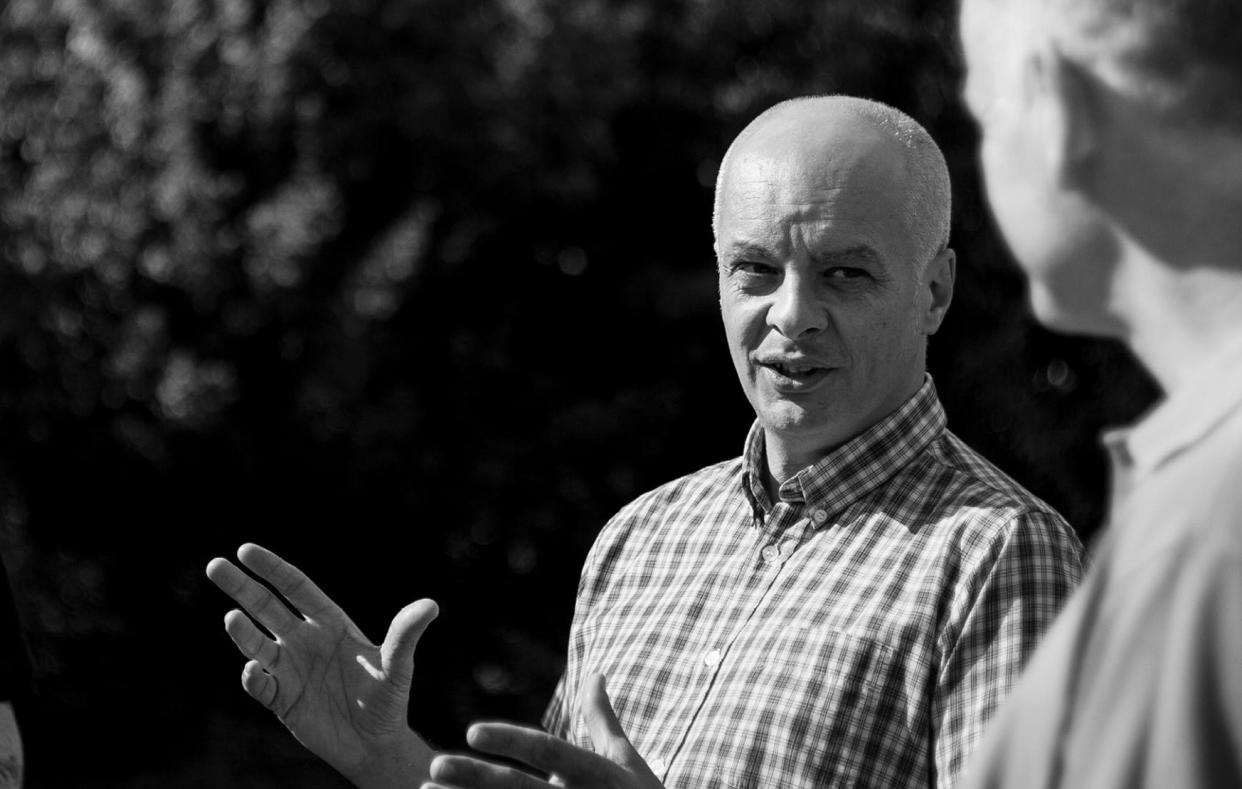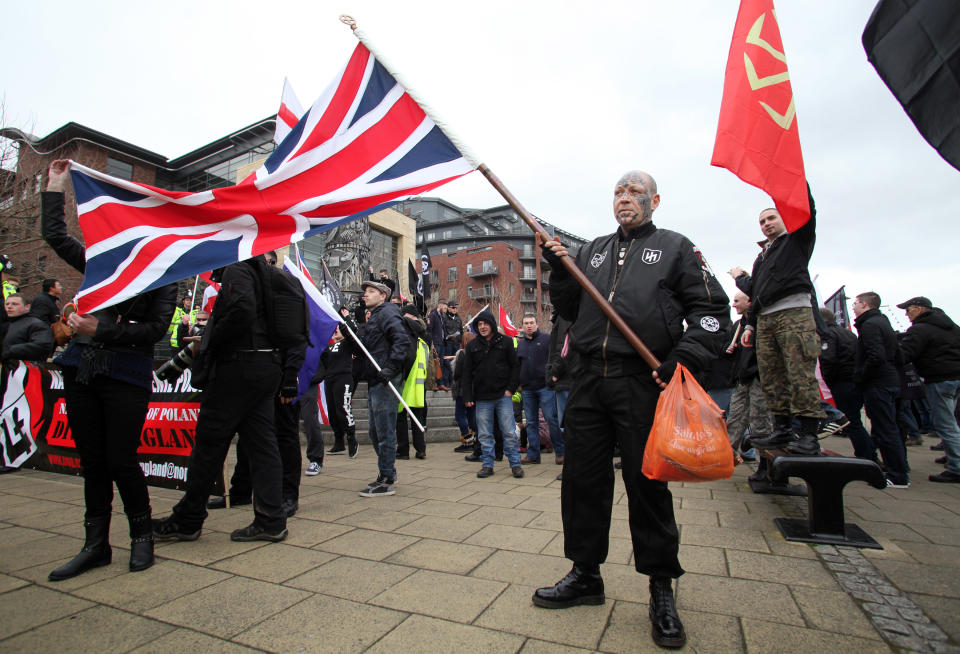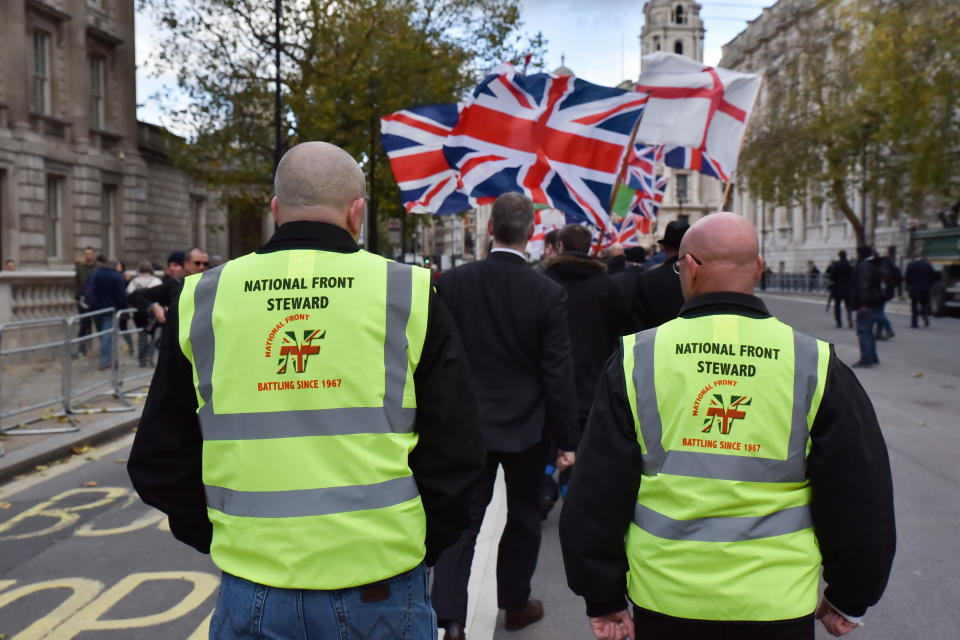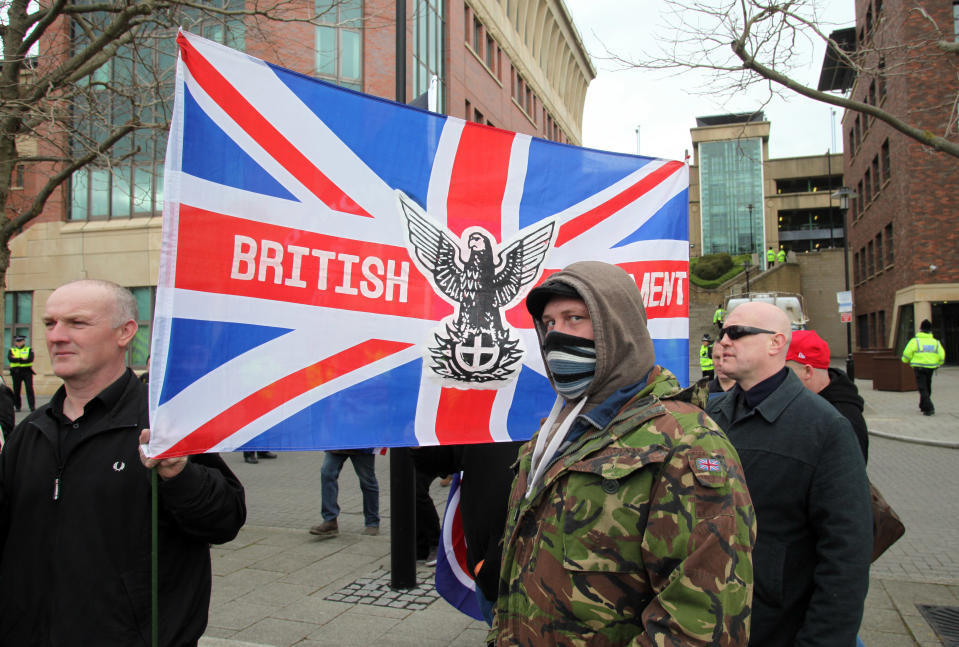'It has never been easier to access the Far Right': A warning from a former neo-Nazi

When Nigel Bromage was 15, he was approached outside his school and handed a leaflet by an organisation calling itself ‘Birmingham Against the IRA’.
The leaflet showed a picture of the charred body of a young mother with no arms, legs or head, who had been killed in an IRA bomb attack.
‘It basically said that if you thought this was wrong then you should do something. Something just clicked inside me,’ Bromage says.
‘I went back to the gent and said “Yes. I need to do something. What do I do?”‘
After attending Birmingham Against the IRA meetings for six months (this was in 1980), Bromage was eventually handed an envelope containing his membership card – revealing he had, in fact, unwittingly joined the far-right National Front.
‘If initially I had known it was the National Front I wouldn’t have touched it with a barge pole,’ the 52-year-old explains.
‘But they said “we haven’t made any racist comments, we don’t advocate people getting hurt”.
‘They had also become aware that my mum was dying of cancer. They would take her to chemo, they used to help get the shopping, because I was 15 and my Dad was away a lot.
‘They were really helpful. I understand now that was all part of the grooming process.’

Now, in part thanks to the proliferation of social media, Bromage says such underhand tactics are unnecessary.
‘In my day you had to be given a leaflet or know somebody. Now you can Google Britain First and all of a sudden you can be joined up within five minutes online.
‘You don’t even have to go to meetings, you can start being active online. You can troll people, troll MPs, councillors, social workers, anyone who looks to be the enemy of the far right.
‘The Far Right has never been more open and easy to access for young people. And because of that, it’s increasing.’
This is a sentiment echoed by retiring head of counter-terrorism in the UK Assistant Commissioner Mark Rowley.
He revealed that four extreme-right terror plots were disrupted last year, and urged social media companies to do more to combat the growing threat.
There are currently 600 live investigations into the right-wing terrorist threat, involving more than 3,000 people.
In a speech made to the Policy Exchange think tank, Mr Rowley said it was ‘important we make these figures public in order to illustrate the growth of right-wing extremism’.

Since leaving the far right, Bromage has set up Small Steps, an organisation that campaigns against far-right extremism.
He and his team of fellow former neo-Nazis, including ex-EDL and BNP members, travel the UK mentoring young people to prevent them joining the far right.
They teach school children, teachers, social workers and police officer about the dangers of getting involved with the movement, as well as the mistruths used to suck in members. The organisation also works with people who have already joined up, but now want to leave.
Family members and friends also get in touch directly to report concerns about young people who are getting mixed up in the far right.
Bromage says he aware of cases of nine-year-olds being referred.
His own turnaround came after years as a foot-soldier of the far right. After spending five years in the National Front, Bromage joined the neo-Nazi group British Movement, rising through the ranks and taking responsibility for recruiting young members.
Through his membership of a US-based racist church, he came into contact with a number of other far right militants.
In the early 90s, as the BNP first started to crumble, he and some of these contacts started an group called Combat 18, a racist organisation that advocated extreme violence against public figures including MPs and police officers.

‘It was a violent neo-Nazi organisation that believed in direct action, and that violence was the only way forward,’ he says.
Eventually, doubts began to creep in. One moment sticks out for Bromage that made him question what he was doing.
As part of a crowd about to attack a black father in Birmingham city centre, he spotted the man’s wife and children sitting at a nearby bus stop, all in tears. He stepped in to prevent the attack, unable to countenance an attack on a normal family man.
‘I’d realised that id joined the far right to fight terrorism but the only thing I was doing was committing violence. We had basically become a terrorist organisation.’ he says.
Bromage moved to London to escape retaliation from the group he had abandoned, only returning to Birmingham years later.
Partly spurred on by guilt about his past, he got involved with community work and ended up undertaking training with Prevent, the government’s anti-terror scheme designed to stop people getting involved with terrorist organisations.
As he became more concerned about the progress of the far right in the UK and Europe, he decided to set up Small Steps.
Bromage claims that no one group is particular susceptible to the message of the far right. Cases come to him from ‘across the board’ of class, background and education.
The common thread, he says, is experiencing an injustice and not knowing how to put it right. Extremist groups than take advantage of the anger and desire for action.
Bromage’s mission is now to stop young people from throwing away their futures, and heading down the path that he himself trod.
‘We see young people who have a lot of promise and a great future in front of them,’ he says.
‘I wasted all my youth in it. I wasted 20 years of my life.’

 Yahoo News
Yahoo News 

